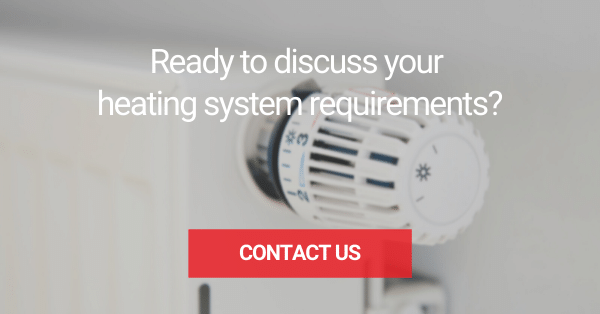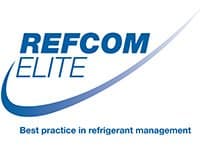Whether you’re researching the legislation changes on gas boilers, seeking alternatives for environmental reasons, or hoping to find a more economical way to heat your home, a big question at the moment is what viable replacements there are for gas boilers in the UK.
Surveys show that almost 80% of UK residents use a natural gas boiler for central heating. However, with the soaring price of gas and the growing importance of using greener energy, many are looking for alternative heating solutions.
In this post, we’ll be exploring several different ways the problem of heating new and existing homes is being resolved throughout England and Wales.
What is the 2025 gas boiler ban?
The gas boiler ban refers to legislation forbidding gas boilers from being installed in new homes after 2025. This is part of a scheme from the UK government to reach a net zero on carbon emissions by 2050.

In 2019, it was found that one third of the greenhouse emissions from the UK came from carbon-heavy heating systems. Because of this, the government has made it a priority to decarbonise domestic and commercial buildings. You can see the full strategy on the UK Gov website.
The plan is for these new homes to be built with different heating strategies in mind from day one. But what will replace these gas boilers after 2025?
Who will be affected?
The ban only applies to the builders or owners of new homes built after 2025.
These laws will not affect the gas boilers already installed in homes and businesses and there are currently no plans to phase these out. However, if there’s a gas boiler in your home, you could still benefit from grants such as the Boiler Upgrade Scheme if you do choose to seek an alternative.
Depending on your building, this may ultimately bring down your energy bills, shrink your carbon footprint, and lessen the risk of gas leaks.
What is being used to replace gas boilers?
There are a few options to think about in terms of alternatives to gas boilers. Here are some of the most widely used solutions:

-Heat Pumps
Air Source Heat Pumps and Ground Source Heat Pumps are proving popular ways to heat properties through renewable means. They function as heat exchangers, pulling heat from the air and earth.
Air source heat pumps suck in air from outside the home and compress the outdoor heat in a liquid refrigerant to produce more heat. They use some electricity to work, but do not emit carbon dioxide.
The heat created by the Heat Pump can then be used in your home in a variety of ways. An Air-to-Water Heat Pump can heat water which can be distributed through radiators or underfloor heating. An Air-to-Air Heat Pump can blow warm air out into your home, similar to an air conditioner.
Ground Source Heat Pumps function in a similar way, drawing solar heat from underground using buried pipes. They can be more efficient in the coldest months, however, these are often more expensive and difficult to install and maintain than Air Source Heat Pumps.

-Electric radiators
Rather than relying on a central boiler or furnace, electric radiators are usually individual appliances placed in each room. Modern systems have the option of smart heating controls, to set when the different radiators turn on and what temperature they reach. You can also choose between wall-mounted and freestanding options.
Electric heaters do not output CO2. However, they are often less energy efficient than modern gas boilers and may make your heating costs more instead of less expensive, depending on how much you pay for electricity and gas respectively.
If you choose this option, you may require a separate electric water heater, or need to use a different system to provide hot water for your home.
-Solar Thermal Systems
Solar heating generally isn’t a standalone heating solution, but they can provide up to 70% of your heating and hot waterpower as part of a hybrid heat system, depending on weather and placement.
These renewable heat technologies use Solar Thermal Panels to heat water and Solar PV Panels to generate electricity. You can also use a combination of both working together – a Solar Photovoltaic Thermal (PVT) system.
There are government schemes and incentives in place to support low-income homes using solar energy and you may receive some payment for any surplus energy you export back to the grid. However, the upfront cost for installing solar panels can be high, and their location and position can have a big impact on how much energy they produce.
-Hydrogen Boilers
“Hydrogen blend” boilers are currently on the market and “Hydrogen ready” boilers are expected to follow in the coming years. They are expected to work similarly to gas boilers, except that the product of burning hydrogen is water, rather than CO2, so they are considered better for the environment than carbon heating systems.
There are plans to slowly replace all UK boilers with hydrogen ready ones over time, and to introduce more and more hydrogen into the national gas grid once “hydrogen blend” boilers are installed into the majority of homes. However, there is no saying how long this will take – “hydrogen ready” boilers are currently still in the prototype stage – so they are not a solution available in the short term.
What funding is there to help me heat my home using renewable energy?
As of this year, the ECO4 scheme is assigning funding to certain low-income homes for energy efficient heating solutions such as insulation, electric storage heaters, and Air Source Heat Pumps.
Solutions such as solar heating may also qualify you for the government’s 0 VAT measure on energy saving materials.

The boiler upgrade scheme is also running until at least 2025. This can give you £5,000 off heat pumps for many domestic properties in England and Wales, so long as they are not new builds and have a current EPC certificate with no outstanding recommendations. To qualify for this scheme, you must use a qualified installer, such as Total Environmental Kooling.
Contact us today to receive a free quote for your Air Source Heat Pump Installation.







